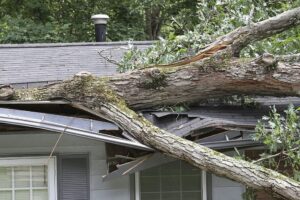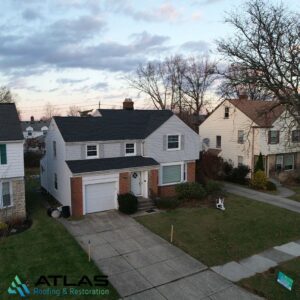Understanding Commercial Roofing
Commercial roofing plays a critical role in protecting businesses, warehouses, and industrial properties from environmental elements. Choosing the right roofing system not only enhances durability but also ensures energy efficiency, cost savings, and long-term structural integrity.
For property owners, understanding different roofing types can help in making informed decisions regarding installation, maintenance, and repairs. This guide explores various commercial roofing options, highlighting their benefits and applications.
Common Types of Commercial Roofing Systems
TPO Roofing (Thermoplastic Olefin)
TPO is one of the most popular commercial roofing materials due to its energy efficiency and cost-effectiveness. It is a single-ply membrane roofing system designed to reflect UV rays, reducing cooling costs and improving sustainability.
Advantages of TPO Roofing:
- High resistance to punctures, chemicals, and tears
- Strong heat-welded seams for superior durability
- Environmentally friendly and recyclable
- Cost-effective with a long lifespan
TPO is commonly used on flat or low-slope roofs, making it ideal for retail spaces, office buildings, and industrial facilities.
PVC Roofing (Polyvinyl Chloride)
PVC roofing is another durable and energy-efficient option for commercial properties. This single-ply membrane is known for its superior resistance to chemicals, grease, and fire, making it an excellent choice for restaurants, factories, and warehouses.
Benefits of PVC Roofing:
- Highly resistant to chemicals and grease
- Exceptional durability with reinforced seams
- Fire-resistant properties enhance safety
- Low maintenance and easy to repair
PVC roofing systems provide excellent waterproofing and can withstand extreme weather conditions, ensuring long-term reliability.
EPDM Roofing (Ethylene Propylene Diene Monomer)
EPDM is a synthetic rubber roofing membrane known for its exceptional flexibility and weather resistance. It has been widely used in commercial roofing for decades due to its ability to withstand extreme temperatures and UV exposure.
Key Features of EPDM Roofing:
- Long lifespan with proper maintenance
- Highly resistant to UV radiation and ozone exposure
- Flexible material that accommodates building movement
- Cost-effective and easy to install
EPDM is commonly used for low-slope commercial roofs, particularly in climates with fluctuating temperatures.
Modified Bitumen Roofing
Modified bitumen is an asphalt-based roofing system designed for enhanced strength and durability. It consists of reinforced layers that provide excellent resistance against foot traffic and extreme weather conditions.
Why Choose Modified Bitumen Roofing?
- Strong and durable with superior waterproofing
- High resistance to impact and heavy loads
- Excellent adhesion and seamless installation
- Adaptable to various weather conditions
This type of roofing is ideal for buildings that require extra durability, such as healthcare facilities, schools, and commercial complexes.
Choosing the Right Commercial Roofing System
Selecting the best commercial roofing material depends on several factors, including budget, climate, and building structure. Property owners should consider the following aspects:
- Energy Efficiency: TPO and PVC offer excellent heat-reflective properties, reducing energy costs.
- Durability: EPDM and modified bitumen are well-known for their longevity and resilience.
- Maintenance Requirements: Some roofing materials require more frequent inspections and repairs.
- Weather Resistance: Consider the local climate and how the roofing system will perform under different conditions.
FAQs About Commercial Roofing
How Long Do Commercial Roofs Last?
The lifespan of a commercial roof varies by material:
- TPO Roofing: 20-30 years
- PVC Roofing: 25-30 years
- EPDM Roofing: 30-40 years
- Modified Bitumen: 20-25 years
Regular maintenance can extend the longevity of these roofing systems.
What is the Best Commercial Roofing Material?
The best material depends on your specific needs. If energy efficiency is a priority, TPO or PVC may be the best choice. For durability in harsh climates, EPDM and modified bitumen provide superior protection.
How Often Should a Commercial Roof Be Inspected?
It is recommended to inspect commercial roofs at least twice a year and after major weather events. Early detection of issues can prevent costly repairs.
Final Thoughts
Choosing the right commercial roofing system is essential for protecting your investment and ensuring the longevity of your property. Whether you opt for TPO, PVC, EPDM, or modified bitumen, each material offers unique benefits tailored to different commercial applications.
For expert guidance and professional installation, Atlas Roofing & Restoration provides top-tier commercial roofing solutions designed to meet your specific needs. Contact us today to discuss your project and find the best roofing solution for your property.




